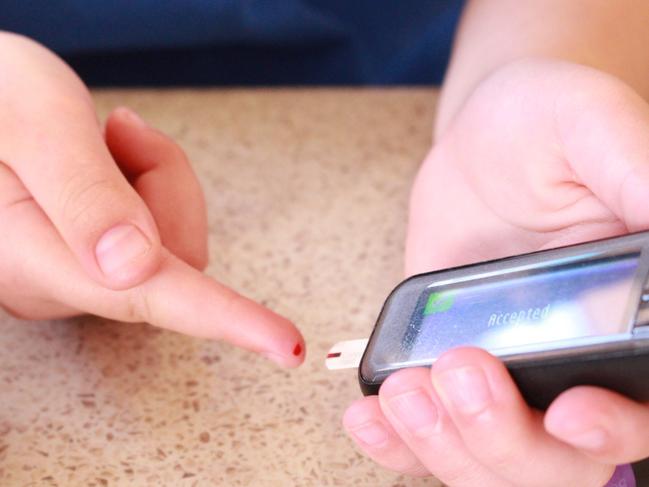Parents pull diabetic daughter from school after horror insulin overdose
The fearful parents of a seven-year-old diabetic girl have pulled her out of school after staff put her life at risk with an insulin dose 12 times higher than it should have been.
Education
Don't miss out on the headlines from Education. Followed categories will be added to My News.
A seven-year-old Victorian diabetic girl has been learning at home for more than a year after her primary school staff gave her an accidental overdose of insulin.
The life-threatening incident led to the girl, then in prep, being given an insulin dose twelve times higher than it should have been.
The girl’s parents say this is one of many incidents at Wallington Primary near Ocean Grove that has stopped her from going to school out of fears for her safety.
In 2024, more than half of the Victorian parents surveyed by lobby group Type 1 Voice reported safety issues at school for their child with type one diabetes.
It comes after the preventable death of Kilvington Grammar student Lachlan Cook due to complications from type one diabetes on an overseas school trip in 2019.
In Australia, some teachers are tasked with the responsibility of administering insulin to diabetic children under the voluntary Diabetes in Schools program run by Diabetes Australia.
A spokeswoman for Diabetes Australia said the program, launched in 2020, “provides nationally consistent information and education to support families and school staff to help students with type 1 diabetes thrive at school”.
Other schools manage the students’ medication needs themselves in conjunction with families.
Wallington Primary was not part of the Diabetes in Schools program at the time of the overdose, and neither was Kilvington Grammar at the time of Lachlan Cook’s death.

Some schools are refusing to let children go on school camps or excursions without their parents due to concerns about the ability of staff - regardless of what training they have received - to manage their condition.
The seven-year-old girl’s father told the Herald Sun her overdose led to a “mad dash to school, with a pediatrician forced to intervene”.
“She could have ended up in hospital. We got it sorted but there was a very disappointing response from the school and the Department of Education who have not made changes to ensure her safe return,” he said.
“We have a duty of care to keep her safe, and under the current system we feel her health is at risk,” her father said.
“She is still enrolled and we hope she will be able to return,” he said.
A parent of a child who doesn’t attend school camps due to safety concerns said there was a need for a “formal training program to qualify school employees for the safe inclusion of type one kids”.

A spokeswoman from Type 1 Voice said the Diabetes in Schools program was “unregulated, meets no training standard, provides no qualification and is not provided by a Registered Training Organisation”.
She said concerns “had been recognised by legal entities for many years, yet the risks to students and the exposure to their teachers have been ignored”.
State and territory Work Health and Safety Regulators consider the Diabetes in Schools program a regulatory issue, with one stating in June 2024 that “it is not safe for educators to provide healthcare”. The ACT WorkSafe regulator is now making inquiries.
A spokeswoman for the Department of Health and Aged Care said the program has been “overwhelmingly well received by schools, diabetes health professionals and, most importantly, the families of children living with diabetes”.
The Victorian Department of Education said Wallington Primary “remains committed to meeting the needs of all students, and further supporting the student’s return to school”.
A Diabetes Australia spokeswoman said its voluntary program “has been developed with input by all of Australia’s leading diabetes organisations following exhaustive consultation across every state and territory with diabetes experts, clinicians, teachers, and families of children with type 1 diabetes”.




